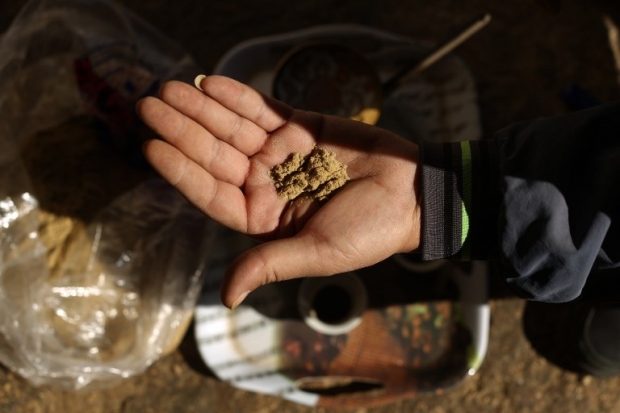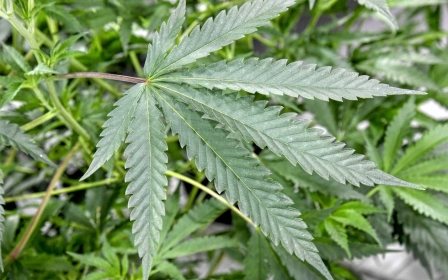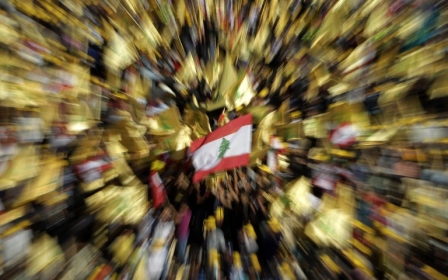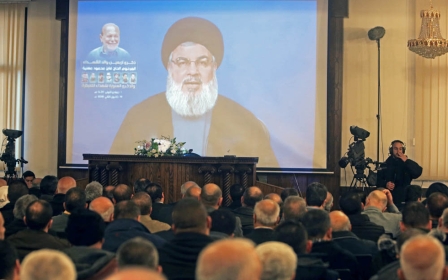Legal cannabis offers doubtful buzz for Lebanon's financial woes
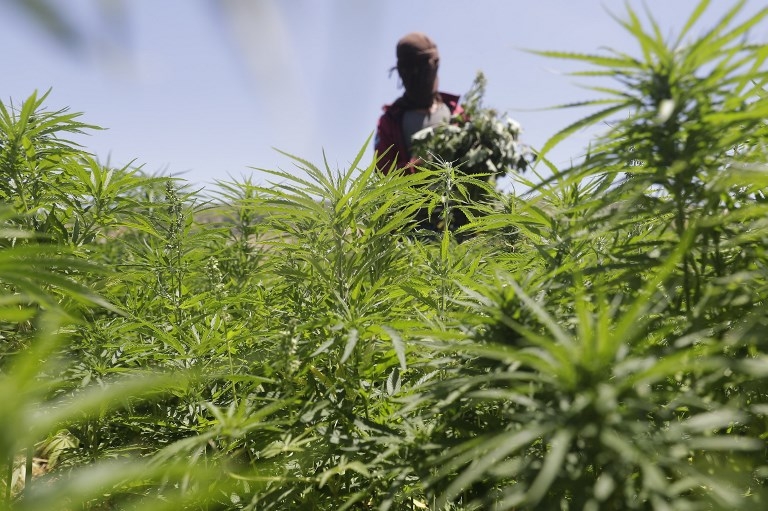
The question as to whether a legal cannabis industry can salvage Lebanon's deteriorating economy has spawned a drove of recent headlines. The Guardian’s "Budding business: how cannabis could transform Lebanon" specifies that the Lebanese government will consider legalising medical cannabis production for export as "part of a package of reforms proposed by McKinsey & Company," a US consulting firm that operates globally.
The firm was contracted by the Lebanese government in January to devise a plan for lessening the economic plight of the world's third-most indebted country, where the poverty rate in certain areas approaches 65 percent.
According to Bloomberg, McKinsey's extensive recommendations were presented to Lebanese President Michel Aoun in early July and also include "building a wealth-management and investment-banking hub," "setting up a construction zone for prefabricated housing that can be used in the rebuilding of war-torn Syria and Iraq," and getting in on new avocado markets.
Illegal cannabis industry
Given Lebanon's already flourishing illegal cannabis industry, concentrated in the Bekaa Valley, it's not difficult to detect the origins of this particular recommendation. And yet, there appears to be some disagreement among the Lebanese political elite over who thought of it first.
Druze leader Walid Jumblatt, head of the Progressive Socialist Party and Twitter-user extraordinaire, tweeted in favour of legalisation back in 2014, but a recent Middle East Eye article quoted Lebanese MP Yassine Jabber as attributing the brainchild to Amal Movement leader Nabih Berri, Lebanon's eternal parliament speaker: "Berri got the idea when he visited a pharmacy in Italy recently and saw cannabis-derived products."
It hardly makes sense for a country to balance its books by throwing gobs of cash at a notoriously pricey consulting firm whose 'fingerprints can be found at the scene of some of the most spectacular corporate and financial debacles of recent decades'
Of course, there are plenty of other manoeuvres that could help alleviate Lebanon's fiscal predicament.
For one, the country could presumably do without that preposterously expensive presence known as the United Nations Interim Force in Lebanon (UNIFIL) - "interim" being used in the loosest sense of the word - which, since 1978, has done nothing to protect Lebanon from Israeli assault but has helped itself to prime coastal real estate and other Lebanese goodies.
According to the UN website, the approved UNIFIL budget for July 2017 to June 2018 alone was $483m.
Additional unnecessary spending occurs on account of the so-called Special Tribunal for Lebanon, a UN-backed operation in the Netherlands that is endeavouring to bust Hezbollah for the 2005 assassination of former Lebanese prime minister Rafik Hariri, while squandering gargantuan sums of money in the process.
As of February 2015, some half a billion dollars had already been spent, with Lebanon in charge of footing 49 percent of the bill.
Powerful clans
More fundamentally, Lebanon is currently ranked 143rd out of 180 countries on Transparency International's corruption index, which, in addition to complicating prospects for equitable economic prosperity, offers some clues as to where the profits from a legal cannabis industry would end up (hint: not in the pockets of the poor farmers Jumblatt & Co purportedly want to help).
Furthermore, it hardly makes sense for a country to balance its books by throwing gobs of cash at a notoriously pricey consulting firm whose "fingerprints can be found at the scene of some of the most spectacular corporate and financial debacles of recent decades," as the Independent noted in 2014. The article continued: "Personal corruption has touched the highest echelons of McKinsey."
But back to Lebanon's "budding business". The Guardian's Richard Hall reports that "most cannabis production in Lebanon is controlled by a collection of powerful clans in the Bekaa," whose wealth "has made them a power unto themselves - armed to the teeth and willing to challenge the police and army when their livelihood is threatened".
In support of his curious argument, Hall produces a quote from one Qassem Tlaiss, defined as a Bekaa resident who "acts as a representative" of the cannabis-farming clans: "They totally agree with it [the legalisation plan]. It's a serious step towards reforming the Lebanese economy."
Later in Hall's dispatch, Tlaiss gets in a jab at Hezbollah for being "against" the plan: "They want to keep this region poor so they can attract young men to fight for them."
Demonising Hezbollah
As'ad AbuKhalil, a Lebanese-American political science professor at California State University, Stanislaus, responded to this allegation in an email to me: "Typical of The Guardian to find a foe of Hezbollah to lie about ... Hezbollah. Both Hezbollah and Amal have supported [legalisation] but only for medicinal and industrial purposes."
He went on to bring up drug-related accusations of a different nature against Hezbollah, which has long been hyped in US and Israeli propaganda as a perpetrator of "narco-terrorism," a crime that has not only baselessly demonised the Lebanese resistance group but also considerably helped out the US Drug Enforcement Administration in its noble quest for increased funding.
Indeed, one wonders how a legal for-export Lebanese cannabis industry would even take off in light of the United States' "Lebanon-Related Sanctions" and other punitive economic measures targeting Hezbollah. The logistics become even more puzzling given the frequent reduction of the Bekaa Valley to a "Hezbollah stronghold".
For a reminder of the US's own qualifications in fighting wars on drugs and terror, meanwhile, it's useful to review Jonathan Marshall's The Lebanese Connection: Corruption, Civil War, and the International Drug Traffic, in which he writes that, during the Lebanese civil war, "members of allies of the Nicaraguan contras reportedly took advantage of Washington's protection to export cocaine from Central America in exchange for Lebanese arms".
These were the same contras, of course, who were at the time literally terrorising Nicaragua on behalf of US imperial interests.
'Huge economic stakes'
Referencing a 1986 US congressional staff study mission that reported "extremely high level involvement by the Lebanese government in the narcotics trade," Marshall notes that the drug profiteers included "the Gemayel and Geagea families" - still institutionalised components of the Lebanese political scene.
He also cites an analysis according to which the "huge economic stakes" of the drug trade in the Bekaa Valley in the mid-80s "persuaded the various armed factions of the area - Palestinian, Shiite, Sunni, Druze, Christian, and Syrian - more often than not to stay at peace".
A version of this same 'spirit of cooperation,' one might argue, can be applied ... to the capitalist system in general, which abides by the same abusive logic of economic tyranny by the minority
A version of this same "spirit of cooperation," one might argue, can be applied to Lebanon's present-day sectarian arrangement, whereby the sectarian elite are united in their commitment to screwing over the masses, as well as to the capitalist system in general, which abides by the same abusive logic of economic tyranny by the minority.
Barring any drastic systemic shake-ups, any "budding business" promising to transform Lebanon's financial situation is likely instead to end up a continuation of business as usual.
- Belen Fernandez is the author of The Imperial Messenger: Thomas Friedman at Work, published by Verso. She is a contributing editor at Jacobin magazine.
The views expressed in this article belong to the author and do not necessarily reflect the editorial policy of Middle East Eye.
Photo: A worker cultivates plants at a cannabis plantation in the village of Yammouneh in Lebanon's eastern Bekaa Valley on 23 July 2018 (AFP)
Middle East Eye propose une couverture et une analyse indépendantes et incomparables du Moyen-Orient, de l’Afrique du Nord et d’autres régions du monde. Pour en savoir plus sur la reprise de ce contenu et les frais qui s’appliquent, veuillez remplir ce formulaire [en anglais]. Pour en savoir plus sur MEE, cliquez ici [en anglais].



